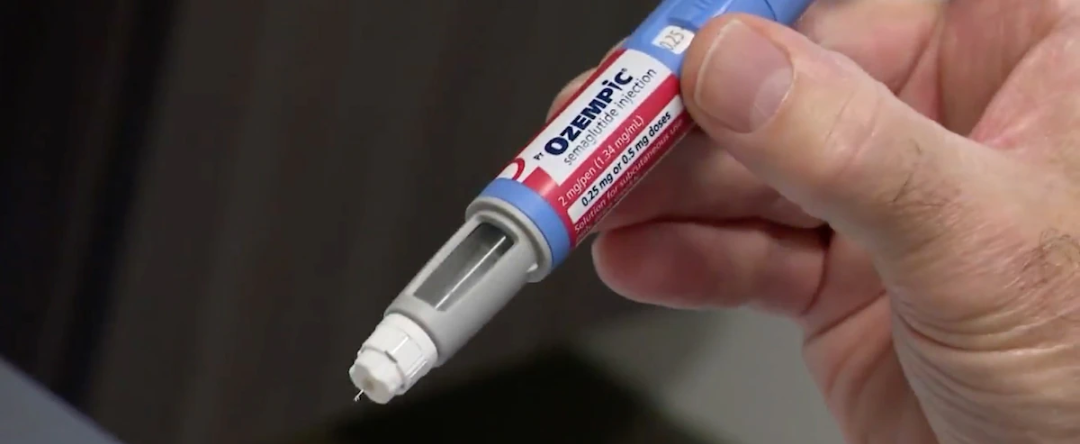You may not be familiar with the term GLP-1 receptor agonist, but you have definitely heard the name of the brand that has recently taken diet culture by storm, Ozempic.
So what exactly is Ozempic? To understand this, we have to understand more about GLP-1 receptor agonists. GLP-1 receptor agonists are a type of non-insulin type 2 diabetes medication. Drugs in this class like Byetta, Trulicity and Ozempic help to lower blood sugar, suppress appetite and aid in weight loss. The first GLP-1 receptor agonists gained approval from the FDA back in 2005. At that time, it was prescribed to be taken as a daily micro dose. Today, it is taken as a milligram dose on a weekly basis.
While Ozempic and other GLP-1 receptor agonists were originally prescribed to diabetics, the drastic appetite suppressing nature of the drug became appealing to those who wanted a quick and easy road to weight loss. It became a commonly used drug by movie stars and other rich and famous people to drop weight fast and now has gained traction as a weight loss tool by almost anyone who can get their doctor to sign off on a prescription.
So why has this drug become so popular? Like anything in our society, people want a quick and easy solution and Ozempic is that solution for weight loss; or at least it appears to be. One of the problems our society faces is that the majority of people have been convinced that there is an easy solution to every problem, we don’t have to change our ways, we don’t have to say no, we simply can take a miracle drug that will have us dropping weight in no time instead of putting in the real work and making positive changes to your daily diet.
The unfortunate truth is, the powers that be want you to think that there is an easy solution to every problem, so that they can sell you that solution and profit off of you.
There is a misconception that obesity is a genetic condition. Those who believe this will tell you that the food that we eat does not matter, and they will have you believe that something beyond your control is the problem. Because the problem is something you cannot control, your diet and exercise habits will have no affect on weight loss. Of course, we know that this is not the case.
Unfortunately, this line of thought is appealing to many who want their cake and to eat it too (no pun intended). This is one of the reasons why Ozempic has become so popular. Many people will start Ozempic and think that they can still eat the foods they have been always eating, because in their minds, their obesity is a genetic condition and not based on their life choices. It has nothing to do with the food they eat, there is no such thing as a bad food. While injecting Ozempic they continue to eat whatever they want.
A while these people take Ozempic, their false beliefs on the cause of their obesity is validated, they continue to eat whatever they want (in much smaller portion due to the appetite suppressing nature of the drug), are losing weight and their A1C is lower. This creates the false notion that they must be getting healthier.
Something that must be understood, is that to maintain the benefits of weight loss and improved A1C, you will have to continue to inject Ozempic for the rest of your life. If you stop taking it, you will be at risk of gaining all your weight back plus ten pounds more. We are seeing with the earlier research coming out, that not only does Ozempic make your fat cells shrink, it also increases the number of fat cells in your body, so while your fat cells are smaller, you have more of them. This is the false reality that Ozempic creates in those who take it, yes you will lose weight, but it is not a solution that surpasses the time in which you are actively taking the drug. It’s not like when you loose weight through healthy measures like a keto or carnivore diet, if you loose hundred pounds, and you go off the diet, you may gain twenty pounds back, with Ozempic you will gain it all back plus ten pounds.
This may not deter everyone from using the drug as a weight loss tool. You may be thinking, so what? I’ll just stay on the drug for the rest of my life and I won’t ever gain the weight back. Unfortunately, too often people think the future will be rosy, but what happens if you lose your job, or lose your insurance or your life savings. This means you won’t have money to purchase Ozempic each month, then what will happen?
We are also seeing from early research that people who are prescribed Ozempic but continue to eat bad diets, deprived of nutrients, good fats and protein, experience a large amount of muscle loss that goes along with the weight loss. Keep in mind, when you are on a weight loss program, you want to loose body fat not muscle. So, if you are eating a high carb, low-protein and low-fat diet, you will loose a lot of muscle.
We are also seeing a lot of connective tissue loss as well as a result of the drug. This is most obvious in the side affect known as Ozempic face, that sunken loose skin look, and this is not a good thing.
With the use of the higher dose Ozempic, there is no long-term safety data, if you started to use the higher dose Ozempic in 2022, you need to know that you will be the experiment. This is called post market data. Pharmaceutical companies got approval from the FDA, then placed Ozempic on the market. Health care providers all over the country then prescribe the drug to their patients and look for negative outcomes and negative side effects, and report it to the data base. The problem is most health care providers do not take the time nor do they have the time to report their findings, so at this point, no one on the planet knows for certain what the long-term side effects of Ozempic use will be.
There is so much more to discuss on this topic so stay tuned for part two where we go deeper into the topic.

